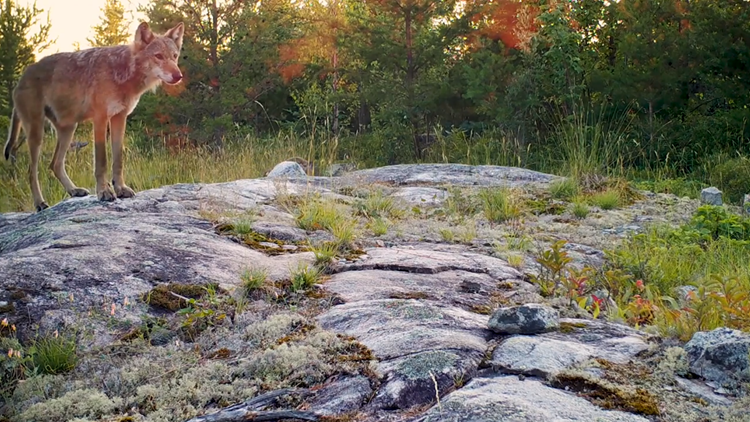Researchers with the Voyageurs Wolf Project have found that the canine predators are changing the entire ecosystem - just by eating beavers and hampering their productivity.
Wolves in boreal ecosystems generally rely on beavers for food in the summer, for up to 42% of their diet. Boreal ecosystems make up 17% of Earth's land surface area - including a large area in northern Minnesota.
Because beavers shape waterways by creating dams and impoundments that can last for centuries, wolves can have a massive impact on the actual ecological processes by hunting beavers.
The new study by the Voyageurs Wolf Project found that wolves "radically alter the environment" when they keep new beaver ponds from being maintained, or old ponds from being recolonized, by preying on "dispersing beavers" that are setting out to start or find their own dams.
The study was done in the Greater Voyageurs Ecosystem. That includes Voyageurs National Park, bordering Ontario in the north and the Boundary Waters Canoe Area Wilderness in the east. The lower portion of the study area includes U.S. Forest Service, state-owned, and commercial forest land.
Beavers have a huge impact in the Greater Voyageurs Ecosystem, creating 7,175 impoundments, or dams, viewed from the air in 2019. That means they've impounded about 13% of the landscape, according to the study's estimates.
The Voyageurs Wolf Project study focused on wolves hunting and killing "dispersing beavers," or beavers that were heading out to create new dams and ponds. From 2015 to 2019, researchers captured 30 wolves and gave them GPS collars.
They tracked wolves that killed the "dispersing beavers" and then kept track of the ponds those beavers left behind. They found that without the beavers to maintain the ponds, the ponds remained "inactive" for at least a year. The only way for those ponds to be recolonized is if a new beaver finds them and continues to maintain the dam, which research suggests is rare. Therefore, at a site where a beaver has been killed, the land is prevented from becoming wetlands for one to two years, and perhaps even longer.
The study estimates that wolves altered the establishment of about 88 ponds per year, and the storage of nearly 200,000 cubic meters of water per year. Therefore, researchers concluded that wolves are altering wetland creation.
The researchers did not find that wolves are actually controlling or suppressing beaver populations, however, even as they're impacting the landscape itself.



